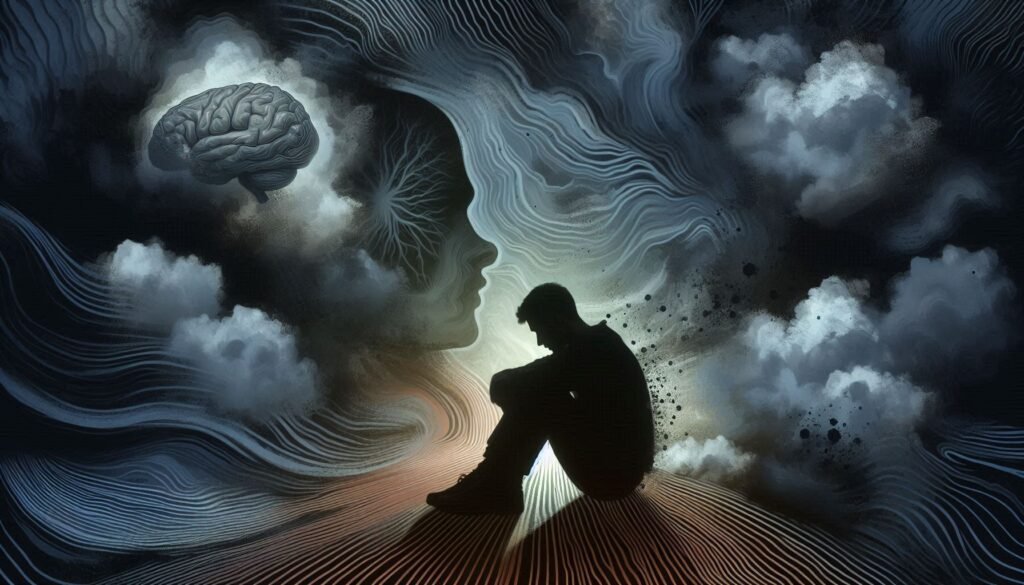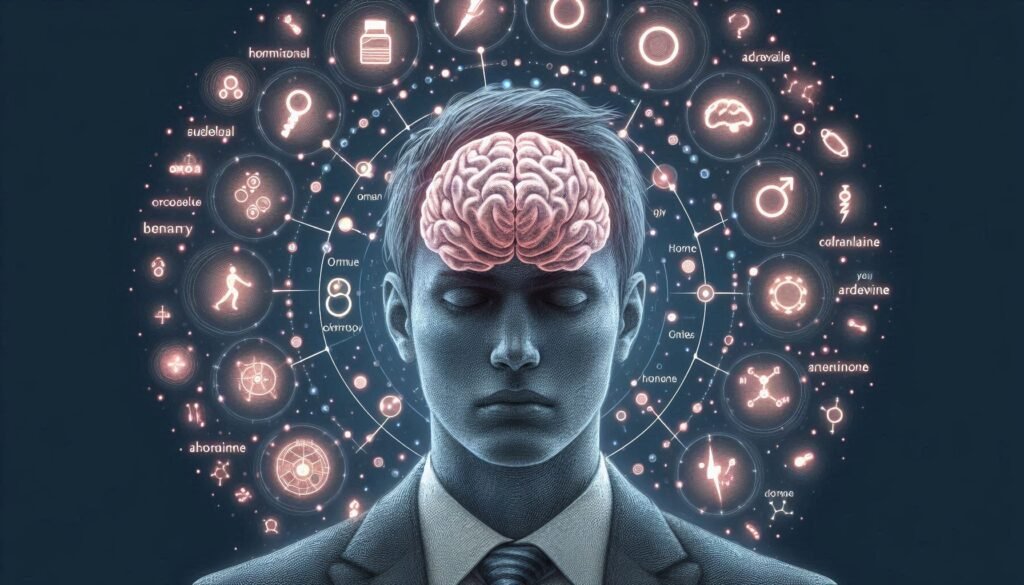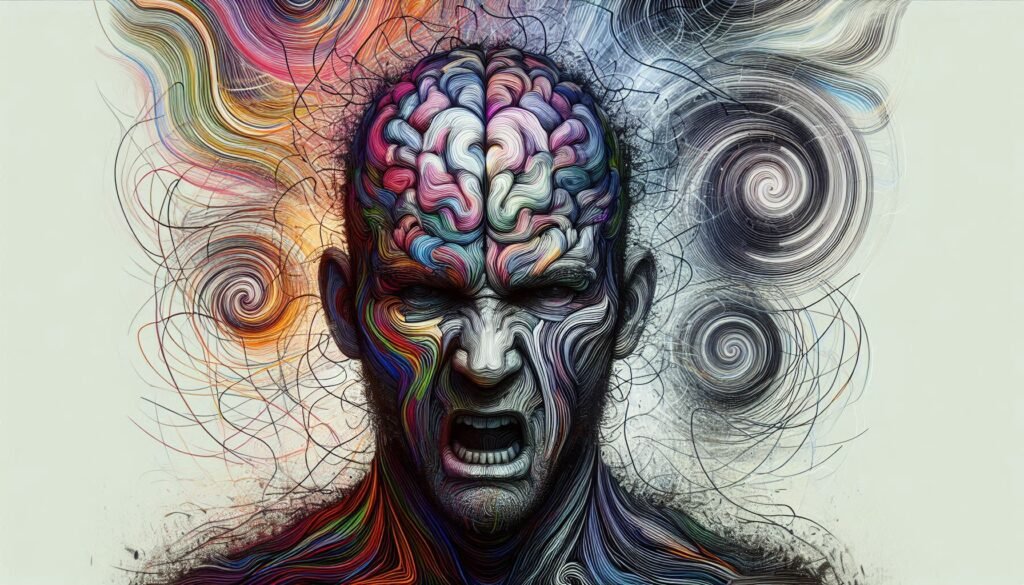Concussions are often associated with physical symptoms, but the emotional aftermath can be equally challenging. Anxiety and depression post-concussion are increasingly recognized as significant issues that impact recovery and quality of life. Many individuals may find themselves grappling with mood changes after a head injury, making it crucial to understand the neurobiological connections at play.
As we delve into this topic, we’ll explore how concussions affect mental health, identify common symptoms experienced by patients, and discuss effective treatment options. Whether you’re recovering from a concussion or supporting someone who is, understanding these emotional impacts is essential for healing and regaining control over your well-being. Let’s uncover the complexities of anxiety and depression following a concussion together.

The Neurobiological Basis of Mood Changes After Concussion
Concussions disrupt the brain’s delicate balance, impacting various neurotransmitters responsible for regulating mood. After a head injury, changes in serotonin and dopamine levels can lead to heightened feelings of anxiety and sadness. These chemical imbalances create a fertile ground for emotional disturbances.
Additionally, the inflammation that often accompanies concussions can affect neural pathways linked to emotion regulation. This neuroinflammation may cause disruptions in communication between different brain regions, contributing to mood swings and irritability.
The physical damage from a concussion may also result in structural alterations within the brain. Areas associated with emotional processing, such as the amygdala and prefrontal cortex, can be particularly affected. Such changes further exacerbate issues related to anxiety and depression post-concussion.
Understanding these neurobiological mechanisms is critical for recognizing why some individuals experience significant mood changes after sustaining a concussion. This knowledge lays the foundation for effective treatment strategies aimed at restoring mental health during recovery.
Common Symptoms of Anxiety and Depression in PCS Patients
Patients with post-concussion syndrome (PCS) often experience a range of psychological symptoms, primarily anxiety and depression. These mental health issues can manifest in various ways, significantly affecting daily life.
Common signs of anxiety include excessive worry about everyday situations, restlessness, and heightened irritability. Some individuals may feel on edge or have difficulty concentrating due to racing thoughts. Physical symptoms such as increased heart rate or muscle tension are also prevalent.
Depression in PCS patients can present as persistent sadness or hopelessness. Affected individuals might find it challenging to enjoy activities once considered pleasurable. Changes in appetite and sleep patterns frequently occur alongside these emotional shifts.
Social withdrawal is another common symptom of both anxiety and depression post-concussion. Patients may isolate themselves from friends and family, exacerbating feelings of loneliness and despair. Recognizing these symptoms early is crucial for effective intervention and support.
Differentiating New-Onset vs. Exacerbated Pre-existing Mental Health Issues
Understanding the difference between new-onset anxiety and depression post-concussion and exacerbated pre-existing conditions is crucial. New-onset symptoms typically arise after a concussion, indicating that the brain injury may have triggered these mental health challenges. Patients often report feelings of panic, persistent sadness, or heightened anxiety they hadn’t experienced before.
On the other hand, individuals with a history of mental health issues might notice their symptoms intensifying following a concussion. This could include increased frequency of mood swings or deeper episodes of depression. Recognizing this distinction can guide treatment approaches effectively.
Healthcare providers often rely on patient histories to differentiate between these two scenarios. A comprehensive evaluation helps identify whether recent changes in mood are indeed linked to the concussion or if they stem from underlying mental health conditions that were previously managed.
The implications for treatment vary significantly based on this understanding. Tailoring interventions appropriately ensures better support for those grappling with anxiety and depression post-concussion while addressing any existing vulnerabilities.
The Impact of Persistent Symptoms on Emotional Well-being
Persistent symptoms following a concussion can significantly impact emotional well-being. Individuals may experience ongoing physical discomfort, which often compounds feelings of frustration and helplessness. This chronic state can lead to heightened anxiety levels as they grapple with uncertainty about their recovery.
Moreover, the brain’s neurobiological changes after injury may alter mood regulation. Many find themselves facing depressive thoughts that seem unmanageable, creating a vicious cycle where negative emotions exacerbate physical symptoms, further hindering recovery efforts.
Social isolation is another concern for those grappling with persistent post-concussion issues. Friends and family may not fully understand the invisible challenges faced by individuals dealing with anxiety and depression post-concussion. This lack of understanding can lead to withdrawal from social interactions, intensifying feelings of loneliness.
These persistent emotional struggles can affect daily functioning and quality of life. Tasks once taken for granted could become overwhelming due to mental fatigue or low motivation—highlighting the need for comprehensive support strategies tailored to individual needs.
Diagnostic Criteria for Post-Concussion Anxiety and Depression
Diagnosing anxiety and depression post-concussion can be complex due to overlapping symptoms with other conditions. Health professionals often rely on established criteria from the Diagnostic and Statistical Manual of Mental Disorders (DSM-5). This includes assessing mood changes, behavioral shifts, and cognitive impairments.
Key indicators for anxiety may include excessive worry, restlessness, or difficulty concentrating. Symptoms like irritability or fatigue further highlight emotional distress following a concussion. For depression, clinicians look for persistent sadness, loss of interest in activities previously enjoyed, or changes in sleep patterns.
Importantly, these diagnoses require careful evaluation over time. Symptoms must be present most days for at least two weeks to meet diagnostic thresholds. Additionally, healthcare providers will consider whether symptoms are new-onset due to the concussion or exacerbations of pre-existing mental health issues.
An accurate diagnosis is essential as it shapes treatment approaches tailored to each individual’s needs. Early recognition can significantly impact recovery trajectories and overall quality of life after injury.
Psychotherapy Approaches for Post-Concussion Mental Health
Psychotherapy plays a crucial role in addressing anxiety and depression post-concussion. Various approaches can help individuals process their experiences and improve emotional well-being. Cognitive Behavioral Therapy (CBT) is particularly effective, as it targets negative thought patterns that may arise after a concussion.
Mindfulness-based therapies are also beneficial. These techniques encourage patients to focus on the present moment, reducing rumination about past events or future fears. By cultivating awareness, individuals can develop healthier coping strategies.
Another promising approach is Acceptance and Commitment Therapy (ACT). ACT helps clients accept their feelings without judgment while committing to actions aligned with personal values. This can empower those struggling with mood changes following a concussion.
Group therapy provides an opportunity for shared experiences. Connecting with others facing similar challenges fosters support and understanding, which can be invaluable during recovery from anxiety and depression related to concussions.
Medication Management of Post-Concussion Mood Disorders
Medication management for anxiety and depression post-concussion is a crucial aspect of treatment. Health professionals often consider the specific symptoms exhibited by patients. Selective serotonin reuptake inhibitors (SSRIs) are commonly prescribed due to their effectiveness in managing mood disorders.
Patients may also benefit from other classes of medications, such as benzodiazepines or atypical antipsychotics. These can help alleviate acute anxiety or severe depressive symptoms but must be used cautiously due to potential side effects and dependency risks.
Close monitoring is essential when initiating any medication regimen. Adjustments may be necessary based on individual responses and tolerability levels, ensuring that the patient receives optimal care tailored to their needs.
In addition, it’s important to communicate openly with healthcare providers about any side effects experienced during treatment. This dialogue helps ensure safer adjustments and enhances overall mental health recovery after concussion trauma.
Lifestyle Interventions to Support Mental Health Recovery
Lifestyle interventions play a crucial role in supporting mental health recovery after concussion. Simple changes can significantly improve emotional well-being and help manage anxiety and depression post-concussion.
Regular physical activity is one of the most effective strategies. Engaging in moderate exercise releases endorphins, which naturally elevate mood. Activities like walking, swimming, or yoga can be particularly beneficial for those recovering from head injuries.
Nutrition also plays an essential role in mental health. A balanced diet rich in omega-3 fatty acids, antioxidants, and vitamins can enhance brain function and mitigate depressive symptoms. Foods such as fish, nuts, fruits, and vegetables should be prioritized to nourish both body and mind.
Sleep hygiene cannot be overlooked either. Establishing a consistent sleep schedule promotes restorative rest that is vital for emotional balance. Reducing screen time before bed and creating a calming bedtime routine helps create an environment conducive to quality sleep.
The Role of Social Support in Emotional Healing After Concussion
Social support plays a crucial role in the emotional healing process after a concussion. When individuals experience anxiety and depression post-concussion, having a network of supportive friends and family can provide much-needed comfort. This connection helps reduce feelings of isolation, which often accompany mood disorders.
Listening ears can validate experiences and encourage open discussions about feelings. Such conversations can help patients articulate their struggles without fear of judgment. Emotional validation is essential for recovery as it fosters resilience.
Support groups specifically designed for concussion survivors offer further benefits. These spaces allow individuals to share their journeys with others who understand similar challenges, creating an invaluable sense of community and belonging.
Engaging in social activities also promotes well-being by distracting from negative thoughts related to symptoms. Encouragement from loved ones to participate in these activities boosts motivation, facilitating emotional healing through shared experiences and positive interactions.
Long-Term Mental Health Outcomes and Ongoing Care Strategies
Long-term mental health outcomes for individuals experiencing anxiety and depression post-concussion can vary significantly. Some may find that symptoms diminish over time, while others might experience persistent challenges. The neurobiological changes induced by a concussion can lead to lasting mood disturbances, which makes ongoing care vital.
Implementing effective strategies is essential for managing these conditions long term. Regular follow-ups with healthcare providers ensure continuous monitoring of mental health status. Tailored treatment plans that adapt as the individual progresses may include therapy adjustments or medication reviews.
Engaging in preventive measures such as mindfulness practices and stress management techniques plays a crucial role in maintaining emotional stability. Building resilience through supportive social networks also contributes positively to recovery efforts.
Embracing a comprehensive approach—incorporating both psychological and lifestyle modifications—is key to fostering sustained mental well-being after experiencing anxiety and depression post-concussion.


